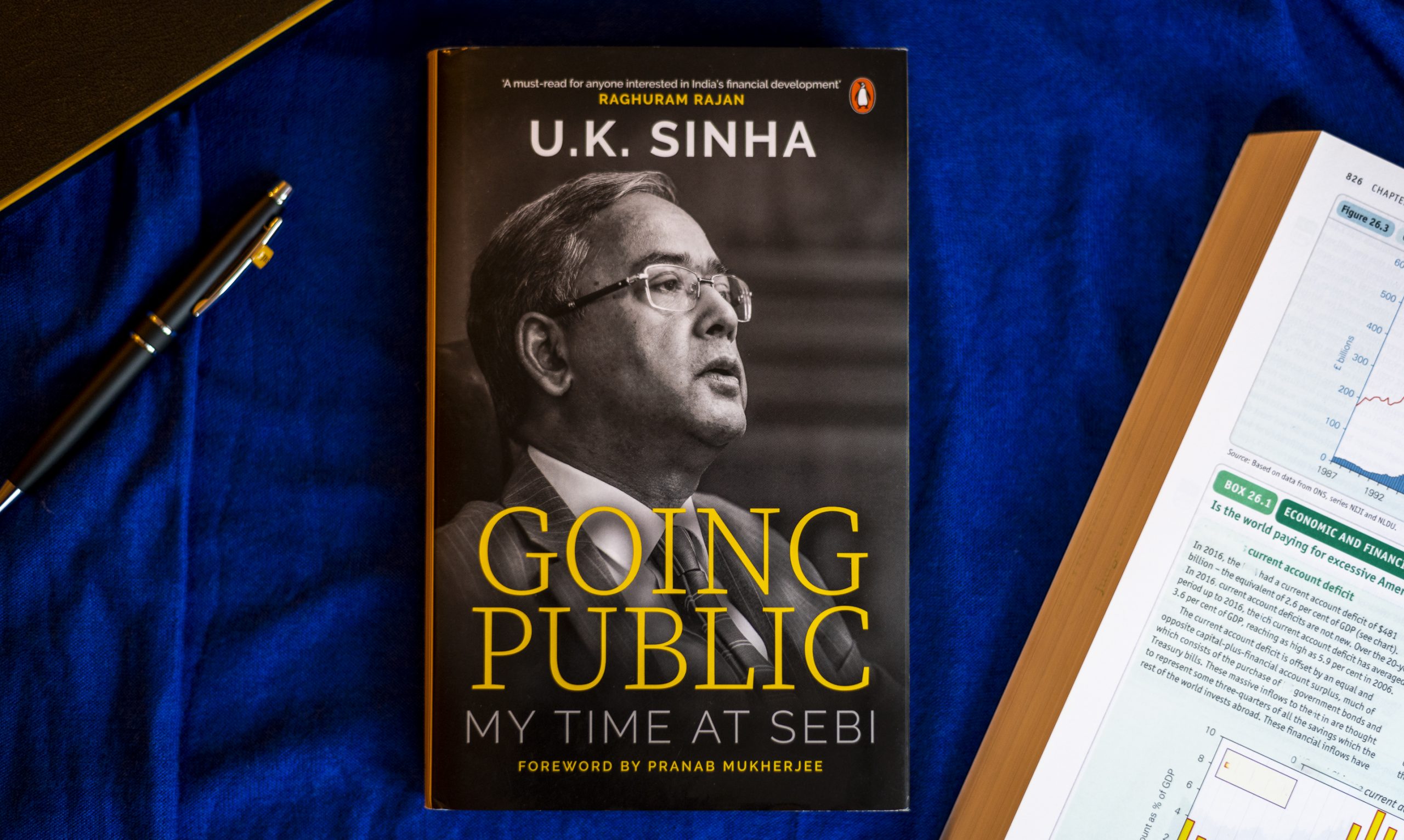
Upendra Kumar Sinha has contributed significantly to shaping India’s capital markets in multiple roles, including as chairman of UTI Mutual Fund and head of the Capital Markets division in the Ministry of Finance. Credited with the revival of the mutual funds industry and bringing in reforms to protect the rights of investors, Sinha has spent decades leading the financial front of the country towards growth and stability. In Going Public, he shares the landmarks on the journey of a nation striving for economic progress and prosperity.
Read on to know about four reforms that shaped India’s financial landscape:
The UTI[Unit Trust of India] Act and the changing role of the government –
Even though the government had no shareholding or operational control in UTI, it was still perceived to be a government institution on account of its association with IDBI, its tax exemption schemes and other contributing factors vis-a-vis the UTI Act, 1963. The already limited role of the government was curtailed further when, in 1997, the practice of having government nominees in the trustee board of UTI was discontinued on the rationale that UTI should be run by a board of experts.
‘Thus, when the crisis developed in 2001, it came to light that the government had no mechanism for timely and first-hand knowledge. In fact, it was the stand of the government that UTI had kept it in the dark. On this, the JPC[Joint Parliamentary Committee] lamented that the government did nothing to emerge from the darkness. After the crisis, Yashwant Sinha reversed the decision over government nominees…’
Amendment to the SEBI[Securities and Exchange Board of India] Act in 2002
The SEBI Act, 1992 allowed the organization to demand records or information from only a limited set of entities but its powers were restricted when it came to prohibiting and investigating misconduct. A game-changing move that strengthened the position of both SEBI and investors was made in the form of the 2002 amendment in the SEBI Act which increased the power of SEBI to deal with misconduct or fraud and led to a crackdown on notorious entities.
‘SEBI could then designate one of its officers as an investigation authority who could not only demand the production of records from “any person associated with the securities market in any manner” but also keep such documents in its custody upto six months. In case of reasonable suspicion that documents may be destroyed, SEBI was also authorized to conduct search and seizure after getting approval from a court.’
Allowing reforms to allow debt to be raised from the market
In order to reduce dependence on banks it is essential to create alternative sources of funds. One way of facilitating growth is making reforms to allow debt to be raised from the market. SEBI, the RBI and the government have been continuously trying to make provisions for the same by simplifying procedures and bringing in uniformity and transparency.
‘Rules regarding credit rating agencies were made stronger and uniformity was implemented in the rating symbols. At the same time, rules about debenture trusts were tightened. Since credit rating agencies and debenture trustees are also supervised by SEBI, better coordination amongst different players in the chain could be established. The government also helped by allowing pension funds to invest in corporate bonds.’

Going Public | U.K. Sinha
undefined
Entrepreneurship with Alternative investment funds (AIFs)
Across the world, a popular method of raising funds for start-ups and new generation companies is Alternative investment funds (AIFs). This unique class of investors raise money from different sources and invest in new and promising private companies based on a prediction of future growth potential. To promote this method of funding, SEBI formulated an AIF Regulation in 2012 and saw positive results.
‘In 2016, AIFs invested more than $16 billion in different companies. In 2018–19, the total funds invested were close to $32 billion. Now, even corporates and rich individuals are setting up funds to invest in start-ups. Many of them are also mentoring the assisted companies, besides making financial investments.’
‘It is not unique to India that changes in the laws governing stock exchanges and share market have been enacted only after major incidents of misconduct have taken place, and not preemptively or when these problems were still much smaller and more manageable,’ writes Sinha. However, scams and deficiencies that challenged India’s financial systems led to reforms that strengthened the economy.









